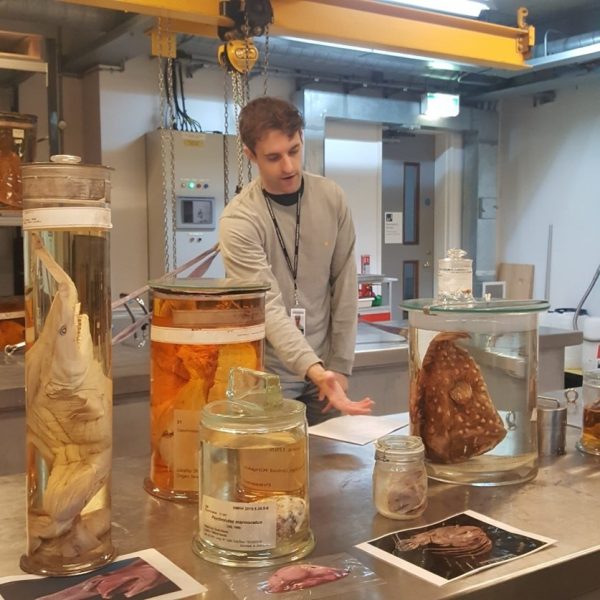
Applying interdisciplinary research to address the societal impacts of climate change.
Prof. Rosalind Cornforth, Director of the Walker Institute and Prof. Tom Oliver, Research Dean for Environment, gave the March lecture titled “How shall we respond to the climate and biodiversity crisis? Assessing and adapting to complex environmental risks”.
This was the latest research seminar in a series organised jointly by the University of Reading and the Natural History Museum (NHM). Following the lecture, the Walker Institute ran a “Q-Storming” masterclass “Knowledge co-production towards making our research more solution-oriented: Q-Storming for collective action” exploring interdisciplinary challenges.
The masterclass constituted a first step in a longer-term process, the overarching objective of which was to develop the collaborations needed to submit solution-oriented action research proposals that will deliver broad co-benefits and avoid maladaptation.
The NHM team, working together with the UoR/Walker Institute team made a note of the discussions undertaken during the day, to feed into future meetings and recommendations arising from this session.
Masterclass Outline
The masterclass followed an adapted ‘Q-storming’ session which was designed to bring together colleagues from across our two communities, to explore how we can bridge disciplines and sectors to harness science effectively for socio-political action and address multiple risks while responding to local adaptation needs.
Q-storming is designed to come up with well-stated questions and problem formulations, not easy answers. To reach actionable solutions, we need first to identify obstacles, then map out local pathways to overcome them. Each Q-Storming table was co-facilitated by members from UoR and NHM. It built on Walker’s prior Q-Storm experience and introduced the use of Facilitated Q-Storming Tables.
Prior to the seminar, the Reading team were taken on a tour of the NHM’s fascinating ‘Tanks’ where a spectacular array of historic specimens are preserved.

